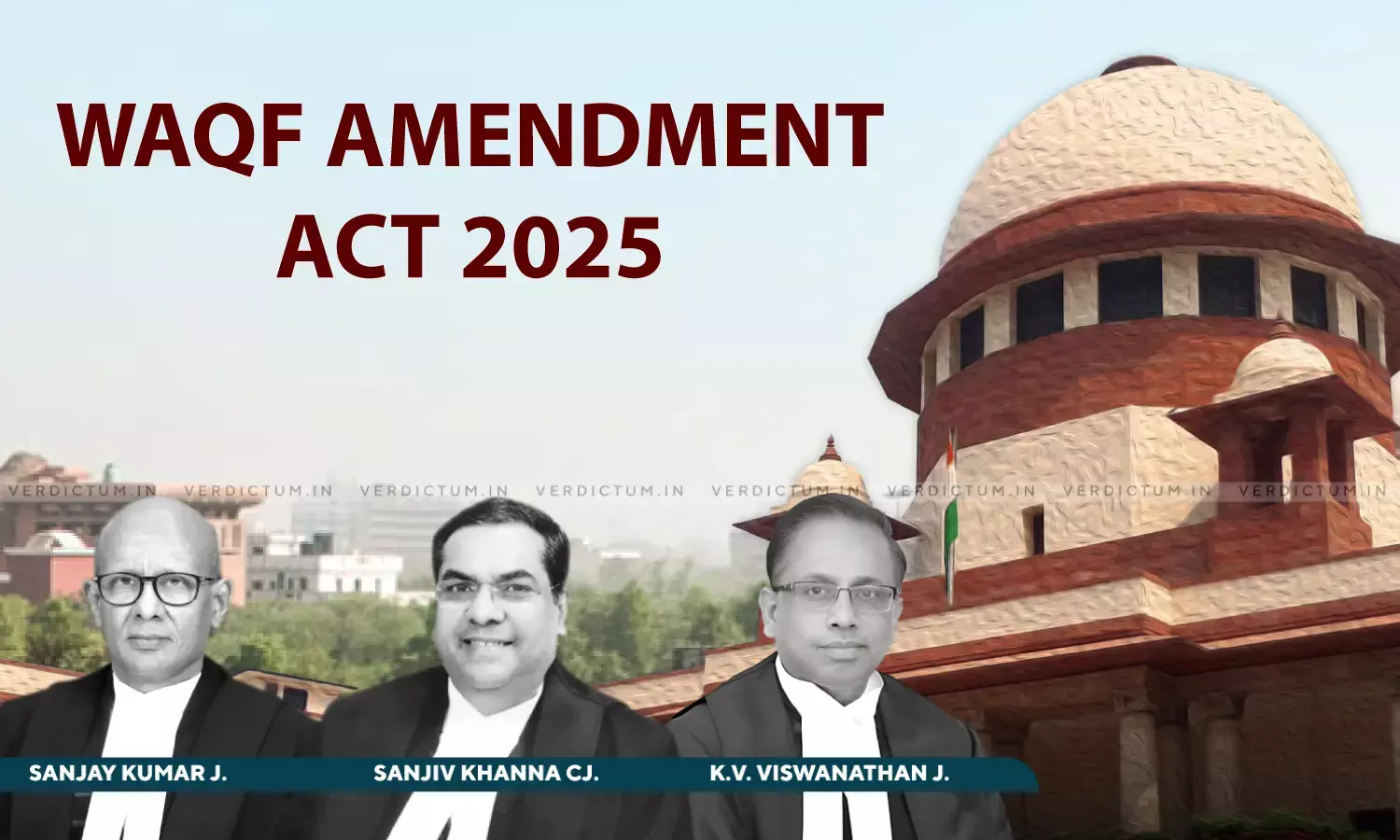The Supreme Court today posted petitions challenging the constitutionality of the Waqf (Amendment) Act before a Bench to be led by Chief Justice of India-designate, Justice B.R. Gavai. The matter has been adjourned to May 14, by when Justice Gavai will be the CJI.
The Bench of Chief Justice of India (CJI) Sanjiv Khanna, Justice Sanjay Kumar, and Justice KV Vishwanathan, taking note of the counter affidavit filed by the Centre, addressed Solicitor General Tushar Mehta, "... Yes, you have raised certain points with regard to the registration part… and you have provided certain figures that are somewhat disputed by the petitioners. That will require some consideration.”
He further remarked, “There are certain aspects you have dealt with that require clarification. There are two things we must point out — one is that I do not wish to reserve it. I would not want to reserve a judgment or even an interim order.”
CJI Khanna added, “There is a reason for that… this matter will have to be heard on a reasonably early date, and it will not be before me.”
Accordingly, the matter was directed to be listed before a bench led by Justice B.R. Gavai, who is the Chief Justice-designate.
The Court April 17, 2025, had
recorded the Centre's statement that during the pendency of the matter, no appointments would be made to the Waqf Boards or the Central and State Waqf Councils under Sections 9 and 14 of the Act.
The Court directed that the Union of India and the Waqf Boards file their responses within seven days and rejoinders within five days. It further directed that, until the next hearing, no appointments shall be made to the Waqf Boards or the Central and State Waqf Councils under Sections 9 and 14. It was also ordered that Waqf properties, including those declared or registered as Waqf by User, shall remain undisturbed, and no denotifications or alterations shall take place.
The Bench had also clarified that only five writ petitions challenging the Waqf (Amendment) Act, 2025, will be considered, and all other petitions will be treated as disposed of.
The Union of India
filed a detailed Preliminary Counter Affidavit before the Court, asserting that the Waqf (Amendment) Act, 2025, is a legitimate and necessary exercise of legislative power, intended to enhance transparency, regulate the growing scope of waqf properties, and curb misuse.
Background
The Central Government had issued a notification stating that the provisions of the Waqf (Amendment) Act, 2025 (Act 14 of 2025), would come into force on April 8, 2025. This notification, issued by the Ministry of Minority Affairs, read, “
In exercise of the powers conferred by sub-section (2) of section 1 of the Waqf (Amendment) Act, 2025 (14 of 2025), the Central Government hereby appoints the 8th day of April, 2025 as the date on which the provisions of the said Act shall come into force.” The Lok Sabha had passed the Waqf (Amendment) Bill, 2025 on April 3rd, 2025. The result of the voting was announced at 1.55 am. 288 Members of the Lok Sabha voted in favour of the Bill while 232 MPs voted against Bill.
The Waqf (Amendment) Bill was passed in Lok Sabha and Rajya Sabha following a marathon over 12-hour debates in both Houses, and also received President Droupadi Murmu's nod. Concluding his speech before the Bill was put to the vote, Union Minority Affairs Minister Kiren Rijiju said that the word 'secular' is being misused and that India is secular, as opposed to Pakistan and Bangladesh, because the majority in India is secular and that this fact should be acknowledged. He also dismissed the charge that the government attempts to divide Muslims in the Country and said that the Bill unites all sects in the Muslim community.
“The provisions of the Waqf Board have nothing to do with the management of any mosque, temple, or religious site. It is simply a matter of property management. However, Waqf properties are managed by the Waqf Board and the Mutawalli. If someone fails to understand this basic distinction or deliberately chooses not to, then I have no solution for that,” Rijiju remarked. A pivotal change that the Act proposes to make involves the application of the Limitation Act, 1963 from the commencement of the Amendment Act aiming to bring resolution of disputes that have often been protracted. The Act further proposes to redefine the authority responsible for handling disputes related to encroachments on government lands by Waqf properties, shifting this responsibility to a higher state government-designated authority, as per the Joint Parliamentary Committee's (JPC) recommendations.
Cause Title: In Re The Waqf (Amendment) Act, 2025 (W.P.(C) No. 276/2025)



